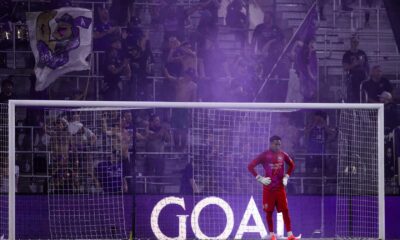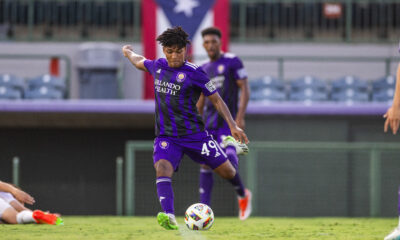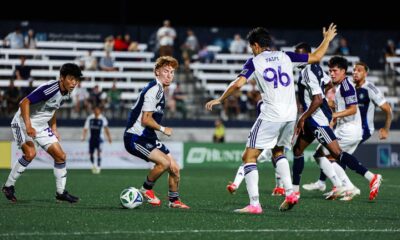Orlando City
Converting More Big Chances Could Propel Orlando City’s Season Into An Epic Universe
An analysis of Orlando City’s conversion rate on big chances and an evaluation of the impact of a small improvement .

If you could all hop in the Wayback Machine with me, I would like to take you all the way back to Sunday, May 18, 2025. It was a glorious day, punctuated by a 3-0 victory over Orlando City’s southern rivals Inter Miami. The Five Takeaways article about that game was pretty awesome too, and in that article, the dashingly handsome and spellbindingly brilliant author noted that Orlando City “could, and probably should, have scored five or even six goals” against Miami.
You probably surmised that the author of that Five Takeaways article was me, and I appreciate your immediate recognition of my handsomeness and brilliance. I am also pretty confident that you believe that Orlando City should have scored more than three goals as well, and I am here to tell you that the eye test and the tracking data agree. The wonderful site fotmob.com tracks a statistic coded by analysts from Opta called “big chances,” which they define on their frequently asked questions page as:
A situation where a player should reasonably be expected to score, usually in a one on one scenario or from very close range when the ball has a clear path to goal and there is low to moderate pressure on the shooter. Penalties are always considered big chances.
The key words in their definition are “reasonably be expected,” and so, while the word ‘expected’ is in this definition, do not confuse “reasonably be expected” with “expected goals” (xG). I think of expected goals more like a geography problem, kind of like the game show Where in the World is Carmen Sandiego? Was that an excuse just to mention that one of my best friends was a contestant on that show in 1994 and won a trip to Orlando? A gentleman never tells.
Back to the geography problem, expected goals is really just a mapping exercise, mapping conversion percentages to locations all over a soccer field and then summing up all the shots taken from those locations in a game. By that measure, fbref.com had Orlando City with an xG of 2.9 against Miami, extremely close to the actual output of three goals. Earlier in the season, however, the xG tracking was 1.6 against Toronto…but the Lions scored four goals.
There are countless examples of the real results not matching the xG. While I value xG and just finished reading a great book called How To Win The Premier League: The Inside Story of Football (soccer)’s Data Revolution, which details the history of expected goals and how the author — the former director of research at Liverpool — helped build the first analytics department at a Premier League club using xG as a foundational measurement tool, I still think xG needs to be used alongside other measures and cannot stand alone by itself.
One of the main reasons I think it needs to be combined with other data is that xG requires a shot to be taken, and sometimes that does not happen. Consider Orlando City’s third goal against Miami, if Duncan McGuire’s cross had gone untouched then the xG on that play would have gone from 0.56 to 0.0, because without a shot attempt there is no shot location, and no map coordinates to use to find the xG for that area of the field.
This takes us back to that definition of big chances, which notably does not include a requirement for a shot to be taken. Duncan McGuire’s pass clearly created a chance to score, and that pass, combined with the perfectly timed run from Dagur Dan Thórhallsson, meant that Orlando City had a great opportunity to score from a location where anyone with eyes would think that “a player should reasonably be expected to score.” If Thórhallsson had whiffed, then the xG would have said no sir, you get 0.0 xG, even though everyone who watched that pass would have said, “Oh my, he should have scored that, what a big chance missed.”
Note: Thórhallsson did not miss, and it was glorious.
According to Opta’s tracking, Orlando City had eight big chances in the game against Miami. Which sounds closer to your memory of that match: Orlando City’s xG was 2.9 or Orlando City created eight big chances to score? I think most people probably think of the latter and remember the breakaways and the close-range opportunities and how it seemed like Orlando City had so many clear chances to score.
Looking at the 2025 season to date, the Lions are tied for the MLS lead with 50 big chances thus far, and just as against Miami, you can see that their conversion rate on those big chances has not been great:
| Club | Big Chances | Big Chances Converted | Conversion Rate |
|---|---|---|---|
| San Jose | 50 | 20 | 40% |
| Orlando City | 50 | 14 | 28% |
| Chicago | 46 | 18 | 39% |
| Columbus | 46 | 14 | 30% |
| Nashville | 41 | 12 | 29% |
| Vancouver | 40 | 21 | 53% |
| LAFC | 39 | 14 | 36% |
| Miami | 39 | 20 | 51% |
| Minnesota | 39 | 14 | 36% |
| Portland | 37 | 16 | 43% |
| MLS Average* | 34 | 12.4 | 37% |
- *The MLS Average is the average of every team except Orlando City
If you were wondering, yes, 28% is among the league’s worst conversion rates on big chances. It is tied for second worst, ahead of only Austin, which must be driving its fans up the wall with a 19% conversion rate on 31 big chances. Maybe the release of Wicked at the end of 2024 put the kibosh on good things happening to those in green for a while. Vancouver, on the other hand, is out there Burning Blue like Mariah the Scientist (contemporary pop song alert), converting a league-leading 53% of its big chances.
For Orlando City, however, 28% feels right. It feels terrible, but it also feels right. How many times did it seem like it would be harder not to score than to score, but then the Lions went ahead and did not score? Luis Muriel leads the team with 12 big chances missed (second most in MLS), and while it takes an extreme amount of skill and work to get into position to miss chances, the reality is that 12 times independent analysts thought Muriel should reasonably have been expected to score and he did not.
Anytime there is a lower-than-average performance there is always a question of whether that performance is reality or if there is a regression to the mean coming. In this case, regression to the mean would actually be positive, or something more akin to ascension to the mean. If Orlando City performs at a conversion rate similar to that of the rest of the league, the Lions will score about one additional goal per every 10 big chances, or an additional five goals over their next 50 big chances generated.
Considering that the Lions generated those 50 big chances in 14 games, it is easy math to double that and put Orlando City at 100 big chances after 28 games at the current pace. That extra five goals, were it to happen and the team continued to similarly convert its “small chances,” would net the team 32 goals in the next 14 games, and take the team to 59 after 28 games, with six more games still to play in the season.
Readers of UpRoar, the weekly newsletter for The Mane Land’s Buy Me a Coffee subscribers, which you can subscribe to by clicking this link, will know that Orlando City’s offense is already on pace to break the club’s MLS goal-scoring record, which is…wait for it…59 goals, and so, if the Lions could start converting more of their big chances, then the 2025 team could not only break that record but smash it — like, epically smash it like the Super Smash Brothers.
And speaking of…what better way to celebrate today’s official opening of Epic Universe but to imagine Óscar Pareja and the coaching staff out there training their goal-scoring dragons and super Marco and Luis-gi to tame the dark world of opposition defenses with their Harry Potter-esque offensive wizardry?
That would be epic, and if you are asking me what the coaching staff should do, that is what I pick.
Orlando City
The State of Orlando City at the Halfway Point of the MLS Season
An analysis of Orlando City’s offensive and defensive performances through the first half of the 2025 MLS season.
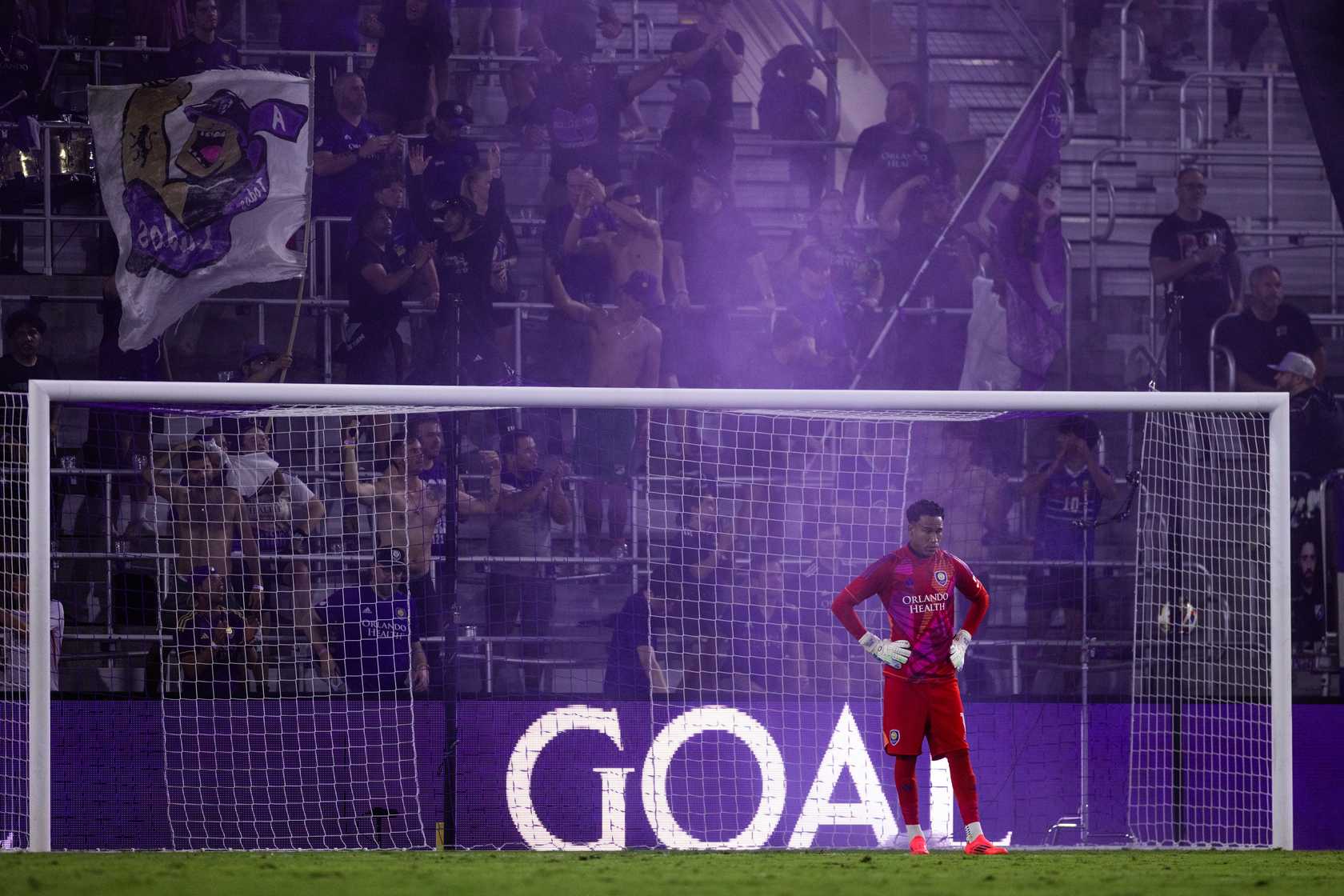
I attended my high school reunion this past weekend (let’s agree not to discuss how many years it has been since I graduated), and late in the evening on Saturday night a karaoke machine appeared. What to my wondering ears did I hear but a great many hits that came from yesteryear. One of those hits, naturally, was karaoke staple “Livin’ on a Prayer” from Bon Jovi, with the famous line of “ohhhhh, we’re halfway there” which every…single…person in attendance sang along with. We probably gave karaoke a bad name.
Orlando City did not have a game during this weekend, but after its last game — one we can also agree not to discuss — the Lions also are halfway there, with halfway there in this case being the halfway point of the MLS regular season. Being that we are at the halfway point, I thought it would be a good time to check in on their performance thus far, so let’s take a look at how the squad is doing in some key metrics.
We shall start on defense, because defense wins championships and because, as Linkin Park sings on one of my son’s favorite songs, when talking about a soccer lineup we usually work up from the bottom. Using Opta’s tracking from fbref.com, here is how Orlando City fared on defense during the first 17 games (MLS Avg. is the average of every team except Orlando City):
| Metric | OCSC | MLS Avg. | MLS Best | OCSC Rank |
|---|---|---|---|---|
| Goals Allowed per 90 | 1.29 | 1.39 | 0.75 | 11 |
| Shots on Target Allowed per 90 | 4.12 | 4.30 | 2.44 | 12 |
| Shots on Target Allowed % | 32% | 35% | 24% | 10 |
| Goals per Shots on Target Allowed | 29% | 32% | 21% | 13 |
| Non-Penalty: G-xG Allowed (full season) | -1.7 | -0.8 | -8.5 | 14 |
| PSxG +/- per 90 | +0.12 | +0.05 | +0.39 | 8 |
The first four rows are pretty self-explanatory, with the team just outside the top third (MLS has 30 teams) in keeping the opponents from putting shots on target and into the net. Prior to the most recent game, the one I do not want to talk about, like Bruno, the team was ranked 10th, giving up 1.19 goals per 90 minutes, but the disastrous first 32 minutes against Chicago knocked OCSC down a spot. In fairness, Chicago has one of the league’s best offenses, but still. Yuck.
The bottom two rows in the table above are the fun advanced stat metrics, with Non-Penalty Goals – Expected Goals being the comparison of actual goals allowed thus far this season to expected goals allowed, and since the Lions’ value is negative, that means that they have given up fewer goals than they were expected to. The defense is performing better than the MLS average, but because several defenses are significantly overperforming against expected goals, the team is only ranked 14th.
Where the Lions are doing much better is in the goalkeeper-focused stat of Post Shot Expected Goals – Goals Allowed, which is the stat that takes into account not just the location of the shot but also how well the shot was struck. In this case, a positive value is good, as it means that the expected goals allowed is greater than the actual goals allowed, and Orlando City’s goalkeepers did well to put the team in the top 10 in this metric.
The last area to look at on the defensive side is the lineups that have been used the most on the back line thus far, and unlike in past seasons, there is a clear first-choice back line playing most of the minutes (1,530 total minutes have been played) through the first half of the season (players listed from left to right just as they play on the field):
| Back Line | Mins | Goals Allowed per 90 | +/- per 90 |
|---|---|---|---|
| Brekalo – Jansson – Schlegel – Freeman | 816 | 1.10 | +0.77 |
| Santos – Jansson – Schlegel – Freeman | 234 | 1.15 | +0.88 |
| Santos – Jansson – Brekalo – Freeman | 95 | 0.00 | 0 |
| Smith – Jansson – Schlegel – Freeman | 92 | 1.96 | 0 |
| Santos – Smith – Schlegel – Freeman | 90 | 2.00 | +2.00 |
I am interested to see what happens in the second half with regard to the back line, as I am not confident that by crunch time in October that it will still be the four on the top row of that chart who are the first choice back line. That said, this group is averaging only giving up 1.10 goals per 90 minutes and is +8 for the season, and the group that played the most in 2024 gave up 1.37 goals per 90 minutes and finished at only +2. Coming off a two-week break, we will see who gets the starts, and whether Rafael Santos can reclaim the left back position and/or if David Brekalo moves inside to center back. Robin Jansson and Alex Freeman are not going anywhere, but the other two spots may see some changes in the upcoming months.
On the whole, Orlando City’s defense has been solid but not spectacular in MLS play. The Lions have seven shutouts, but they also have seven games of giving up at least two goals and four games of at least three goals allowed. Some of the defensive lapses have been pretty rough, and an overall performance that puts them right on the cusp of the top third but squarely not in the top third feels right to me with how they have played this season.
And now from defense to offense, where there has been much more variation in the lineups and much better performance overall, though as I wrote a few weeks ago, I think the offense should be performing even better than it has. Looking at the same statistics as we did for the defense, plus a few more, we can see that the Orlando City offense is a top 10 offense in the most critical metric of all, goals scored, but not in some of the other metrics, which is a cause for concern:
| Metric | OCSC | MLS Avg. | MLS Best | OCSC Rank |
|---|---|---|---|---|
| Goals Scored per 90 | 1.82 | 1.37 | 2.25 | 7 |
| Shots on Target per 90 | 4.88 | 4.28 | 6.12 | 8 |
| Shots on Target % | 32% | 35% | 44% | 25 |
| Goals per Shots on Target | 34% | 32% | 48% | 5 |
| Non-Penalty: G-xG (full season) | +1.1 | -0.9 | +8.4 | 12 |
| Big Chance Conversion | 28% | 37% | 55% | 28 |
| Goals Scored by Designated Players | 20 | 8.1 | 20 | 1 |
The Lions are still on pace to set a club record for goals scored in the MLS regular season, and had they scored one additional goal during the first 17 games, they would find themselves in the top three for goals scored per 90 minutes. Orlando City played a volume game in the first half of the season, ranking eighth in shots on target per 90 minutes, allowing the team to offset a lower-than-league-average performance in the percentage of shots that ended up on target. When the Lions put their shots on target, they converted them better than most, but the team struggled all season long with the final product, as evidenced by the poor performances in the percentage of shots that went on target and the conversion of what Opta deemed to be big chances.
Fellow Floridians Inter Miami converted its big chances at nearly double the rate of Orlando City, and if the Lions converted at that same rate, they would have scored 0.88, or basically one, more goal per game. It is an oversimplification to say this, but I will point it out anyway, the Lions lost two games by one goal and tied six games, and an extra goal in any of those games would have earned Orlando City more points, and with just three more points they would be sitting in second place in the conference. During the preseason, I predicted Orlando City would finish third in the Eastern Conference, so yes, I am a bit salty about all of the dropped points.
Coming back to the offensive metrics, Orlando City is outperforming its expected goals err…expectation…but not by so much that the Lions are among the top teams in the league. Where they are at the top is in the goal-scoring by their three Designated Players, and with the recent injury news about Duncan McGuire the DPs will need to continue that goal-scoring form to get results.
In looking at the attacking lineups, no group has even played the equivalent of three full games together through the first 17 games of the season. Injuries and untimely (read: bleeping stupid) red cards contributed to the large amount of different lineups, and by my count, the team has already rolled out 55 different attacking groups thus far this season. The five groups that played the most constitute only 56% of the total minutes, and no group seems to have established itself as the favorite to emerge as Óscar Pareja’s go-to group.
| Attacking Group | Mins | Goals Scored per 90 | +/- per 90 |
|---|---|---|---|
| Muriel Angulo – Ojeda – Pašalić Araújo – Atuesta | 230 | 1.96 | +0.39 |
| Muriel Angulo – Ojeda – Pašalić Araújo – Gerbet | 206 | 3.50 | +2.18 |
| Muriel Angulo – Ojeda – Pašalić Gerbet – Thorhallsson | 174 | 0.00 | 0.00 |
| Enrique Angulo – Ojeda – Pašalić Araújo – Atuesta | 130 | 2.77 | +0.69 |
| Muriel Angulo – Ojeda – Pašalić Atuesta – Gerbet | 113 | 2.39 | -1.59 |
The group in the top row may have the inside track, but it was in the second half of the season in 2024 when Ramiro Enrique seized the starting role and Luis Muriel started to excel in a supersub role, so the door is open for any of these, or other, attacking groups to establish themselves as that go-to starting group. The MLS Secondary Transfer Window opens on July 24, and that could be a time to bring in another player to compete for offensive minutes as well.
On the whole, Orlando City’s offense has been really good, bordering on great. No team is immune to bad games, but with 31 goals in 17 games, the team has been far more of a real lion than a paper lion on the offensive side of the ball. Long-time fans of Orlando City will remember several (2017, 2018, 2019, 2022) seasons when the team scored fewer than 45 goals during the full 34-game season, so to see nearly two goals per game this season has been a great sight.
Orlando City has a near-top 10 defense and an offense that is among the best in the league, and if the Lions had just kept their heads instead of receiving not one, not two, but three ridiculous red cards, they likely would be in a league table position that is more fitting for how well they played for most of those first-half games.
Soccer is always a game of inches and milliseconds, and the Lions can point to a whole series of almosts and what-ifs that would have/could have/should have led to different results. They did not happen though, which is why the team sits at only 1.59 points earned per match, 11th best in MLS and placing them in seventh in the Eastern Conference.
Historically, Orlando City plays better in the second half of the season than the first, and if this team can repeat that pattern and execute just a little bit better, it will once again be primed to make a deep run in the playoffs. During the past three seasons, the OCSC season ended in the first round (2022), conference semifinal (2023), and conference final (2024), and I think this team has the ability to continue that run of advancement and make it to MLS Cup.
And speaking of run, the highlight of that karaoke I mentioned earlier was not New Jersey natives Bon Jovi, but rather a classmate of mine absolutely crushing a performance of a song by a different New Jersey icon, the Boss, Bruce Springsteen’s “Born To Run.”
Let’s hope that at the end of the season we are all singing along together as well, specifically to another classic rock anthem — Queen’s “We Are the Champions.”
Lion Links
Lion Links: 6/12/25
Reliving the Orlando Pride’s win, Orlando City B loses on the road, Jhon Solis Wins MLS NEXT Pro Goal of the Matchweek, and more.
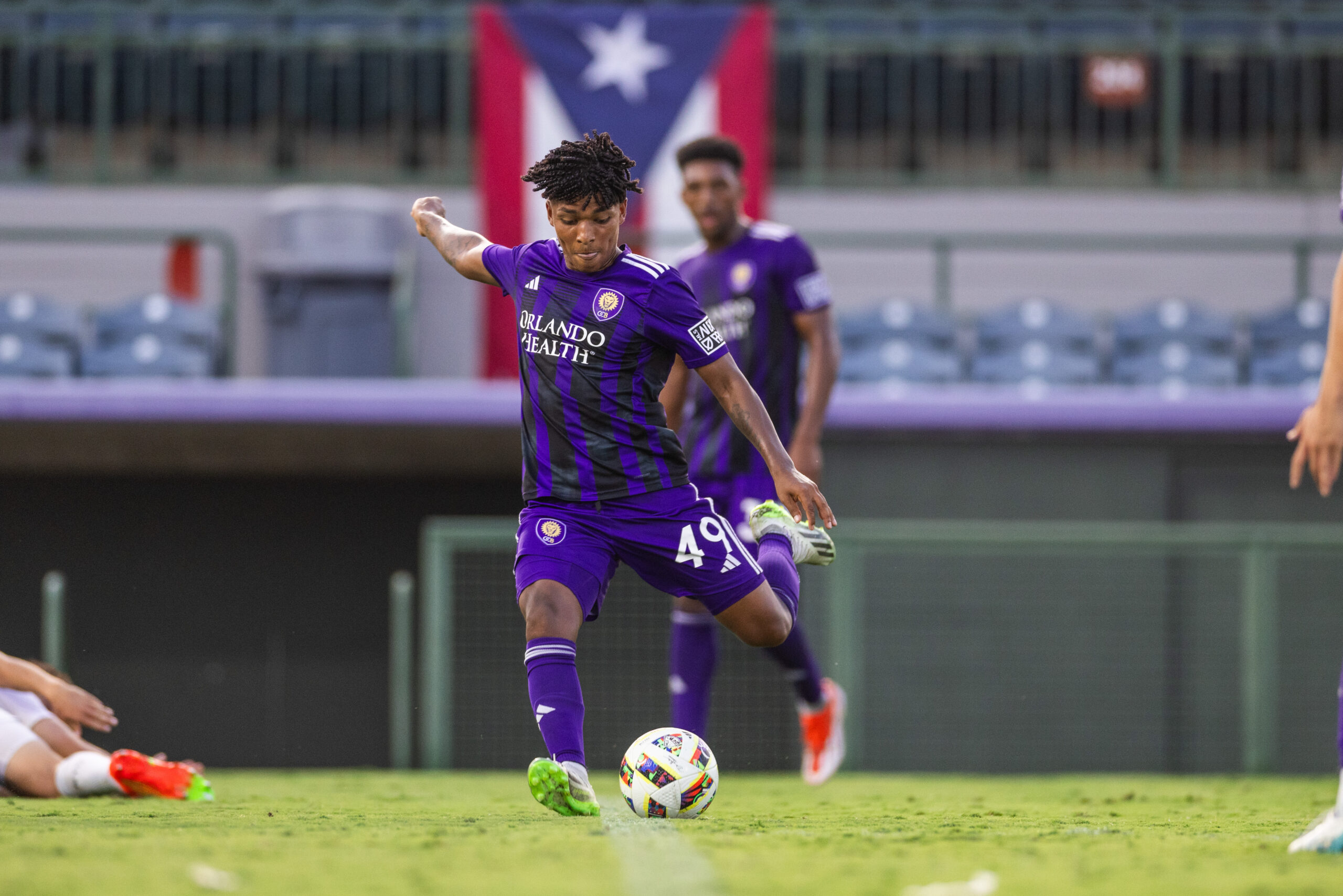
How’s it going, Mane Landers? I’ve been enjoying a pretty good week so far and actually made pizza for the first time last night. It was burnt beyond belief in the end, but still edible, which is a huge win in my book. Let’s go ahead and dive right into today’s links!
Sights and Sounds From the Orlando Pride’s Victory
The Orlando Pride beat the Houston Dash 1-0 at home in dramatic fashion and the club has released a video highlighting the action. Substitute Cori Dyke scored the winning goal deep in stoppage time to give the Pride all three points and second place in the league standings. The video includes Dyke being tossed in the air afterwards in celebration, as well as a pretty good pep talk from Marta. Let’s hope the Pride can win a bit more comfortably when they travel across the country to face Bay FC on Friday night.
Orlando City B Falls to Carolina Core FC
The Young Lions are returning to Orlando empty handed after a 1-0 loss to Carolina Core FC in North Carolina. A goal by Carolina right before halftime proved to be the difference, as OCB struggled to get much going offensively and couldn’t conjure some of the late magic it’s shown in recent matches. Ultimately, it’s a disappointing result after impressive wins over both Chattanooga FC and Huntsville City FC earlier this month. The Young Lions have a bit of a break to reset before trying to get back on track at home against Toronto FC II on June 25.
Jhon Solis Wins Goal of the Matchweek
OCB midfielder Jhon Solis won MLS NEXT Pro Goal of the Matchweek for his strike in the club’s 3-2 road win over Huntsville on June 6. He curled a free kick towards goal with enough power behind it to beat the keeper and equalize things in the 84th minute. Solis also provided the assist from a corner kick on OCB’s first goal, so hopefully he can continue to make opponents pay in those instances this season.
Getting Ready for the Concacaf Gold Cup
The Concacaf Gold Cup kicks off this weekend and plenty of pressure is on the U.S. after a pair of losses in the friendlies leading into this tournament. The team is without many of its usual starters, and Head Coach Mauricio Pochettino will have to figure things out in a group against Saudi Arabia, Haiti, and Trinidad & Tobago. As for other things to watch out for in this Gold Cup, I’m interested to see how Canada fares in its group and if Miguel Herrera’s Costa Rican team can make some noise against Mexico. Panama’s group could end up as the most enticing though, as it features fellow dark horse Jamaica and a pair of underdogs in Guadeloupe and Guatemala.
Free Kicks
- LAFC took advantage of the transfer window open to Club World Cup teams by adding Javairo Dilrosun on loan from Club America through July 24, with an option to purchase. He’ll be a Designated Player, with Cengiz Under returning to Fenerbahce to open up the roster spot.
- The Chicago Stars have signed German defender Kathrin Hendrich to a two-year contract, with a mutual option for 2027. The veteran should help strengthen a Chicago defense that’s conceded a league-high 24 goals this season.
- Sam Coffey reportedly signed a contract extension with the Portland Thorns back in March of 2024 that will keep her at the club through the 2027 season.
- Portland Timbers forward Jonathan Rodriguez will reportedly miss the rest of the season, with the club set to bring a Designated Player in to fill his spot once he’s moved to the season-ending injury list. The 31-year-old led the Timbers in goals last year, but has only made six appearances this season.
- Former Atlanta United forward Giorgos Giakoumakis is reportedly likely to leave Cruz Azul this summer and is interested in a return to MLS. Charlotte FC holds his rights for some reason, but hopefully he winds up in the Western Conference if he does come back to the league.
- Concacaf announced that it is in communication with officials in Los Angeles regarding the situation involving immigration raids and protests in the city ahead of the Gold Cup opener on Saturday between Mexico and the Dominican Republic.
That’s all I have for you this time around. Make sure to stay hydrated out there as we get closer and closer to the unbearable part of summer here in Florida. I hope you all have a wonderful Thursday and rest of your week!
Lion Links
Lion Links: 6/11/25
Orlando City B plays tonight, the Orlando Pride want to enter the break strong, USMNT pounded by Switzerland, and more.
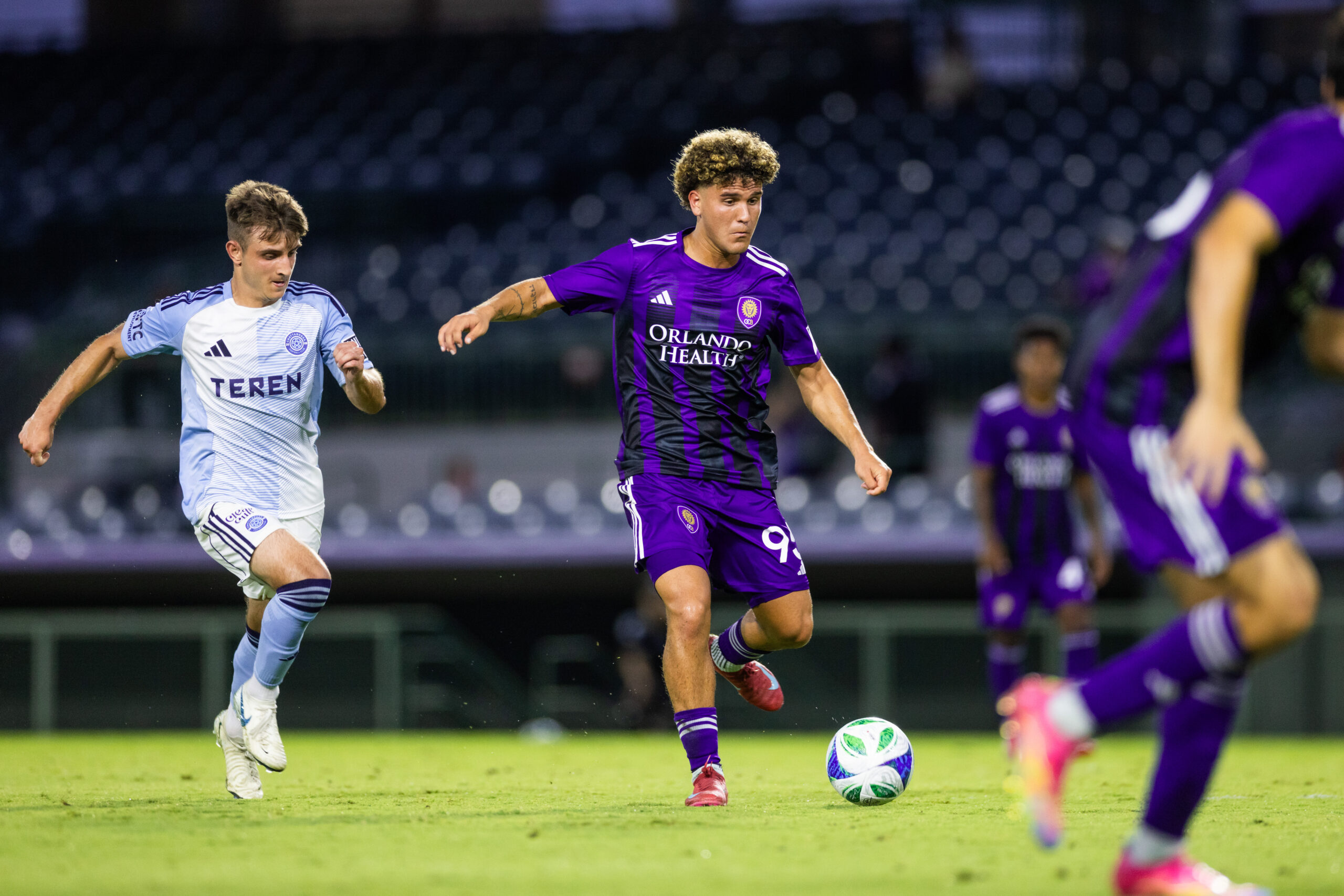
Welcome to Wednesday, Mane Landers. Hopefully, you decided to put your mental and emotional health first last night and skipped watching the USMNT match. I, unfortunately, did not. I’m going to take Ted Lasso’s advice to be a goldfish and move on. I think a great way to do that is to share today’s links with you, but not before we wish Orlando Pride forward Grace Chanda a happy birthday.
Pride Looking to Enter the Break on a High Note
The Orlando Pride are sitting in second place in the NWSL standings. The club is also sitting second in the SI.com power rankings and the goal.com power rankings. For some reason, All For XI has the team at number three in their power rankings, but nobody is perfect. Now, the Pride are looking to head into the NWSL break on a high note in their upcoming two road games. Next up is Bay FC on Friday night.
OCB Visits Carolina Core Tonight
Orlando City B is in action tonight against Carolina Core FC at Truist Point Stadium in North Carolina. The Young Lions look to continue their recent success following two late winners against Chattanooga and Huntsville City. The midweek matchup should mean that Manuel Goldberg will have everyone available for the match, except those who played for the U-18 USMNT in the 2025 UEFA Friendship Cup. We will have match coverage for you both here and on BlueSky.
USMNT Crumbles vs. Swiss
If you turned off the USMNT versus Switzerland match at halftime (or before), I don’t blame you. The Swiss scored four goals in a devastating first half for the USMNT. I’m not saying it happened because Orlando City’s Alex Freeman did not get the start, but I’m not, not saying it either. Things got nominally better in the second half, considering the U.S. did not give up any more goals, but the 4-0 final score was still very, very bad. It was not what fans were hoping to see in the send-off match heading into the Concacaf Gold Cup.
Club World Cup Struggles
I’m not certain if you know that the FIFA Club World Cup starts this weekend, including matches in Orlando at Inter&Co Stadium and Camping World Stadium in the coming weeks. What I do know is that across the various venues the response can best be described as…meh.
If you weren’t interested in going because the price was too high, you might want to check again. There are several former MLS players in the competition, including former Orlando City attacker Facundo Torres with Palmerias, though he won’t be playing in Orlando. There are several good matchups, including Manchester City versus Juventus at Camping World Stadium.
Free Kicks
- Orlando City B players Justin Ellis, Colin Guske, and Jackson Platts were members of the U-18 United States Men’s National Team that won the 2025 UEFA Friendship Cup in Nyon, Switzerland on Tuesday. The U.S. and Portugal drew 1-1 in the final before heading to penalties, where the Yanks won 3-2. Unfortunately, Guske had his attempt from the spot saved in the shootout, but his teammates bailed him out.
- USWNT Head Coach Emma Hayes will be giving the European-based players a break following the end of their season. Instead, the team’s training camp later this month will be made up of exclusively domestic players.
- U.S. Soccer will have a committee look at the college soccer system for ways to better integrate it into the the modern soccer ecosystem.
- USMNT midfielder Yunus Musah’s time at AC Milan may be coming to a close as Serie A champions Napoli may be interested in the American.
- This article came out prior to the 4-0 beatdown, but it still raises some interesting questions about whether Mauricio Pochettino’s style will work with the USMNT.
That will do it for today. Check back as we get you ready for the Orlando City and Orlando Pride matches this weekend. Vamos Orlando!
-
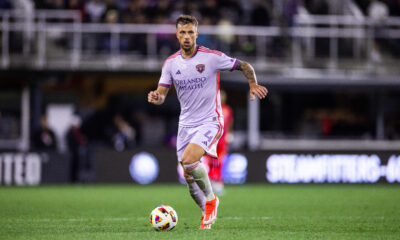
 Lion Links2 weeks ago
Lion Links2 weeks agoLion Links: 5/30/25
-
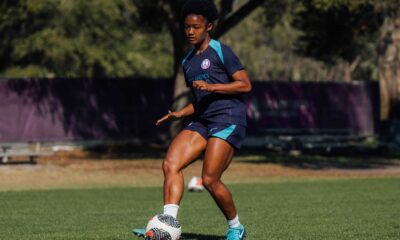
 Orlando Pride2 weeks ago
Orlando Pride2 weeks agoOrlando Pride Sign Forward Simone Jackson Through 2028
-
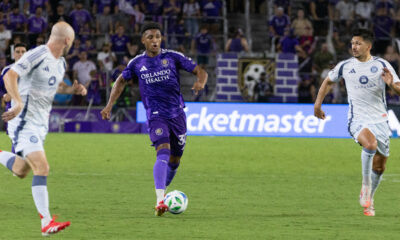
 Orlando City2 weeks ago
Orlando City2 weeks agoOrlando City vs. Chicago Fire: Final Score 3-1 as Dreadful Defending Dooms Lions
-
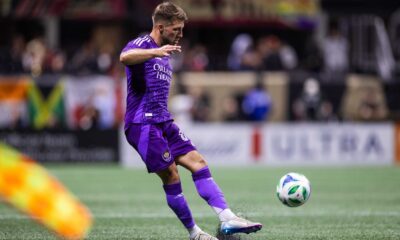
 Orlando City2 weeks ago
Orlando City2 weeks agoOrlando City vs. Atlanta United: Player Grades and Man of the Match
-
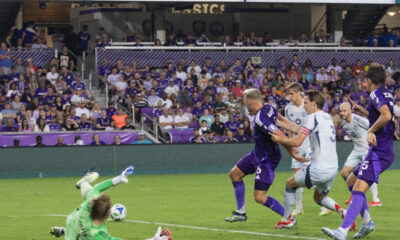
 Orlando City2 weeks ago
Orlando City2 weeks agoOrlando City vs. Chicago Fire: Five Takeaways
-
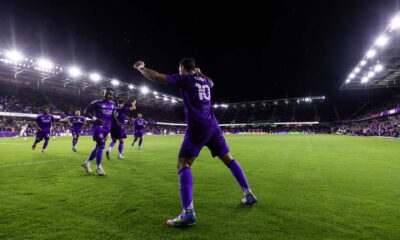
 Opinion2 weeks ago
Opinion2 weeks agoPredicting Orlando City’s June Results
-
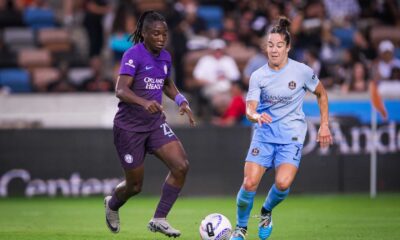
 Orlando Pride6 days ago
Orlando Pride6 days agoOrlando Pride vs. Houston Dash: Preview, How to Watch, TV Info, Live Stream, Lineups, Match Thread, and More
-
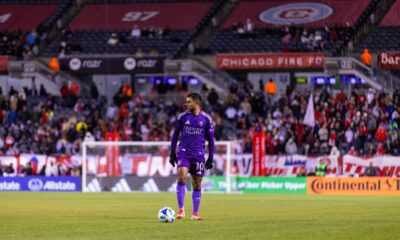
 Orlando City2 weeks ago
Orlando City2 weeks agoOrlando City vs. Chicago Fire: Preview, How to Watch, TV Info, Live Stream, Lineups, Match Thread, and More


